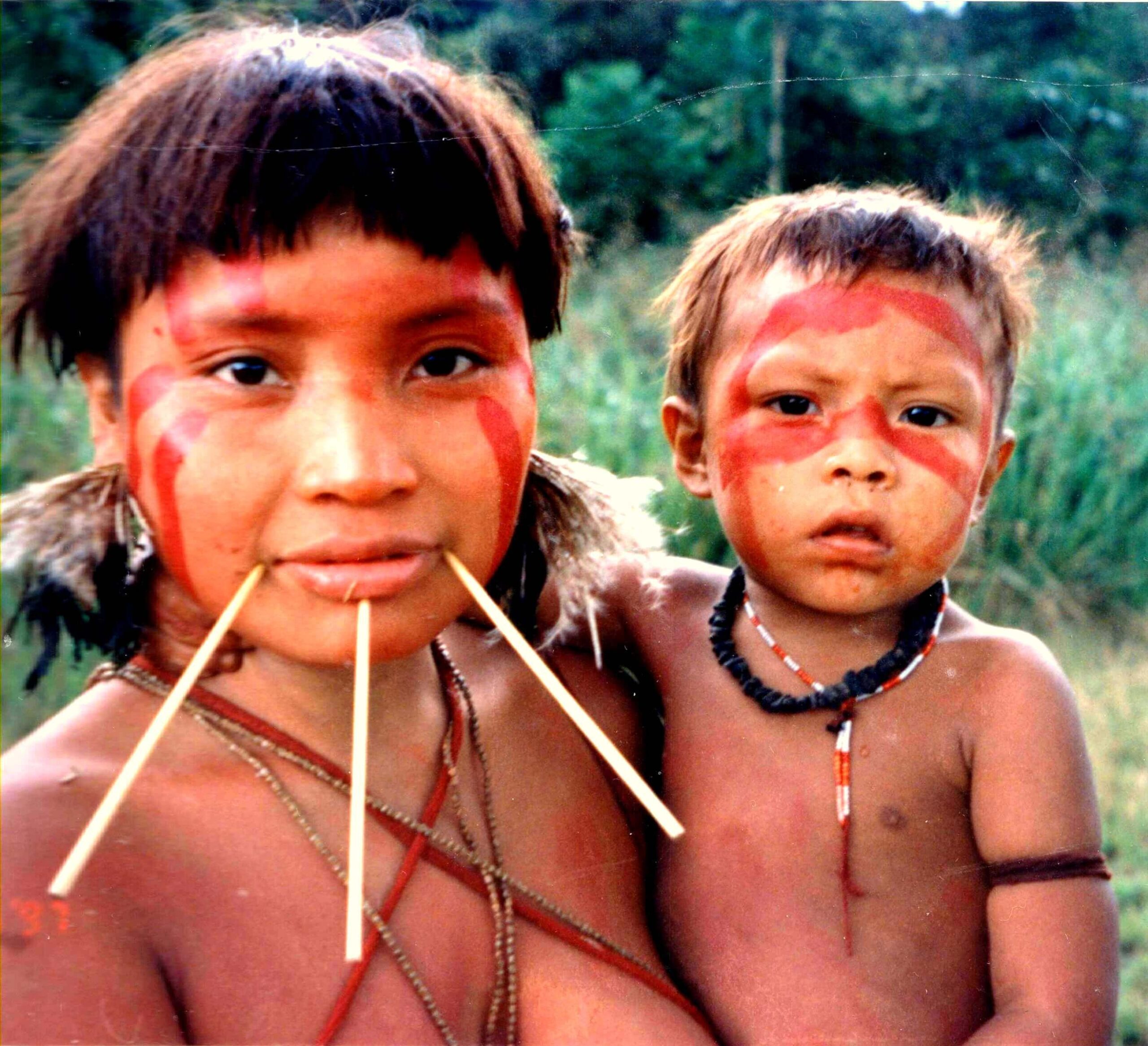Yanomami Tribe (Brazil and Venezuela) History, Culture, Facts, Tradition, Facts, Location, Food, Marriage : The Yanomami Tribe, residing in Brazil and Venezuela, possesses a rich history, vibrant culture, and fascinating traditions. This article explores the unique heritage of the Yanomami people, shedding light on their customs, location, traditional food, marriage practices, and other intriguing facts.
Yanomami Tribe (Brazil and Venezuela) History, Culture, Facts, Tradition, Facts, Location, Food, Marriage

Yanomami Tribe (Brazil and Venezuela) History, Culture, Facts, Tradition, Facts, Location, Food, Marriage
This article delves into the captivating world of the Yanomami Tribe, exploring their history, culture, traditions, location, food, marriage practices, and other interesting facts.
Yanomami Tribe (Brazil and Venezuela) History:
The Yanomami Tribe has inhabited the Amazon rainforest for thousands of years. They are believed to be one of the oldest indigenous groups in South America, with a lineage that can be traced back over 10,000 years. The tribe’s history is deeply intertwined with their relationship to the natural environment and their constant struggle to protect their land and way of life.
Yanomami Tribe (Brazil and Venezuela) Culture and Tradition:
The Yanomami people have a vibrant culture and adhere to a communal way of life. They live in large communal houses known as “yanos” or “shabonos,” which accommodate multiple families. The tribe relies on hunting, fishing, and gathering for sustenance, using traditional methods and sustainable practices. They have a strong spiritual connection to the rainforest and believe in the importance of maintaining harmony with nature.
Yanomami Tribe (Brazil and Venezuela) Location:
The Yanomami Tribe primarily resides in the dense rainforests of northern Brazil and southern Venezuela. Their territory covers a vast expanse of approximately 9.6 million hectares, making it one of the largest indigenous territories in Brazil. Their remote location has allowed them to preserve their traditional way of life, largely untouched by outside influences.
Yanomami Tribe (Brazil and Venezuela) Food:
The Yanomami diet revolves around the availability of resources in the rainforest. Their staple foods include fruits, nuts, vegetables, and fish. Hunting plays a significant role, with game such as tapirs, peccaries, monkeys, and birds providing vital sources of protein. The Yanomami practice sustainable agriculture known as “slash-and-burn,” where small plots of land are cultivated and then left fallow to regenerate.
Yanomami Tribe (Brazil and Venezuela) Marriage:
Marriage among the Yanomami involves elaborate rituals and customs. In the tribe, it is customary for individuals to marry outside of their own village. This practice strengthens social ties and promotes alliances between different communities. Polygamy is also observed, with men often having multiple wives. Marriage is an essential aspect of Yanomami society, contributing to social cohesion and the continuation of their culture.
Interesting Facts about Yanomami Tribe (Brazil and Venezuela):
- The Yanomami people speak the Yanomami language, which belongs to the Yanomam family of languages.
- The tribe is known for their intricate body paint and adornments made from feathers, seeds, and natural pigments.
- Shamanism plays a vital role in Yanomami culture, with shamans acting as spiritual leaders, healers, and mediators between the human and spirit worlds.
- The Yanomami have faced numerous challenges, including encroachment on their land, violence, and the introduction of diseases by outsiders.
- Efforts are being made to protect the Yanomami territory and preserve their cultural heritage through collaborations with indigenous organizations and international support.
The Yanomami Tribe represents a resilient indigenous community with a rich cultural heritage. Their history, traditions, and deep connection to the rainforest make them an invaluable part of the world’s cultural diversity. Recognizing and respecting their rights and preserving their ancestral lands is crucial for ensuring the survival of the Yanomami people and the preservation of their remarkable culture for future generations to come.
